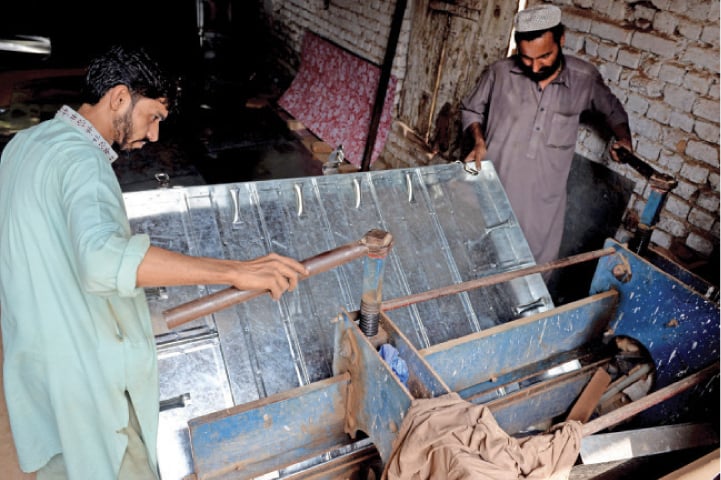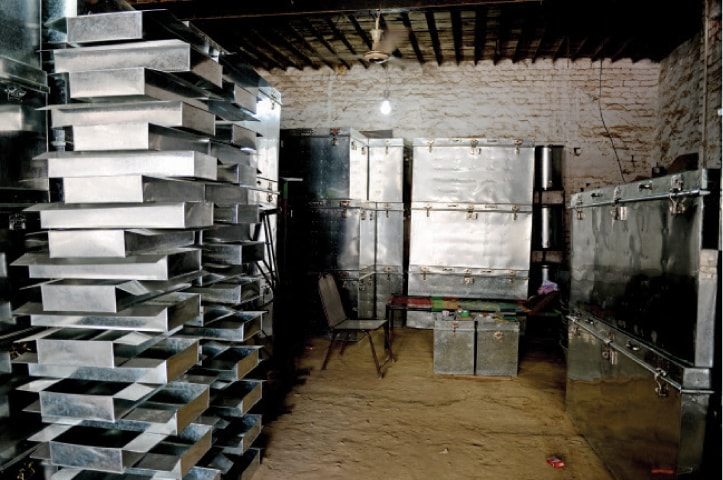
Steel trunks, although not as common as they were in the past, are still in demand chiefly due to their durability and affordability.
Used to store clothes, quilts and blankets, these trunks are made of steel sheets.
Steel trunks were used by soldiers and citizens when embarking on long journeys, as well as to store valuables in their homes and barracks. Even now, with lighter suitcases on the market, these trunks are still used in most homes in villages and even in cities.

In Rawalpindi, a market known as Trunk Bazaar – adjacent to Raja Bazaar – opened before partition, and was established to facilitate British soldiers stationed in the British army’s Northern Headquarters.
Although steel trunks were originally only available in Trunk Bazaar, due to the increase in demand workshops and showrooms have opened in various parts of the city, including Kashmiri Bazaar, Saddar, Chur Chowk, Sabzi Mandi and Pirwadhai.
Workshop employees earn between Rs20,000 and Rs26,000 per month for making steel trunks. The process requires more than seven workers to complete a single trunk, and an old fashioned six feet long trunk sells for around Rs7,000.

Although workers can use machinery to flatten and press the steel, the still have to cut the sheets into various shapes and join them together to make a trunk anywhere between 3ft and 7ft long.
Abid Hussain, who has been running a shop in Kashmiri Bazaar for 25 years, said demand for steel trunks would not fall because they are used by poor and middle class people to store valuables in small towns and big cities.
“Some customers also come to the shop and want the trunks painted, but we usually sell simple ones and then they take them to a painter to make different designs and motifs so they can use them as accessories in living rooms and bedrooms,” he added.

He added that the shop receives customers every day seeking traditional trunks that are to be given to a bride on her wedding day. “Mostly people come from Azad Kashmir and Khyber Pakhtunkhwa to buy them,” he said.
Mr Hussain said orders have increased now that wedding season has begun. However, he said, people from cities also buy trunks, which are a good alternative to wardrobes.
He added that the perception that steel trunk sales had fallen was inaccurate. In fact, he said, the sale of these trunks increased significantly last year. He added that workshop employees work day and night to prepare seven pieces a day.

Mir Ali, a workshop employee, said he has been making steel trunks for 10 years.
“We start work at 8am and worked until 10pm and earn Rs2,000 to Rs3,000 per day,” he said. The work is dangerous, as cutting steel sheets without using machinery is difficult work, and although there are machines that can cut the steel, he said the owner did not use the machines because it increased the electricity bill.
“We still use a hammer and scissors to cut the steel sheets and shape them,” he said.
Muazam Raza, a customer, said he was seeking a large trunk to store clothes, sheets and other household items.
“According to our village traditions, steel trunks were bought to collect items for a daughter’s dowry,” he added.
Published in Dawn, September 10th, 2017












































Dear visitor, the comments section is undergoing an overhaul and will return soon.